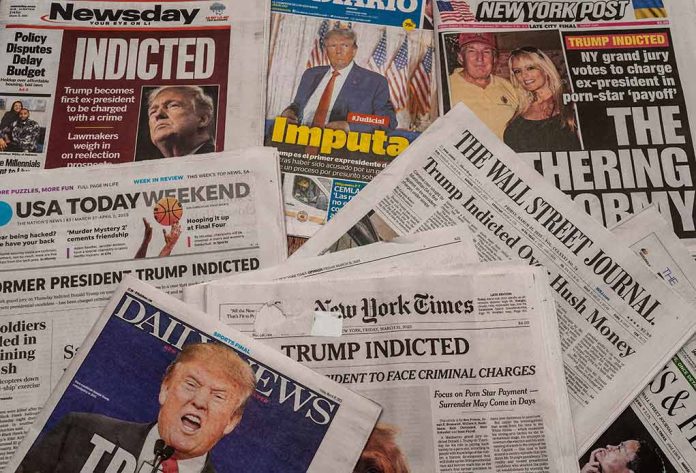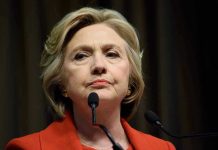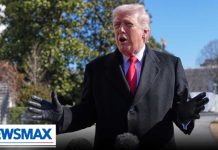
Judge Juan Merchan orders Donald Trump to appear for sentencing in the hush money case on January 10, just days before his presidential inauguration, while signaling no jail time will be imposed.
At a Glance
- Judge Merchan plans to impose an “unconditional discharge” for Trump, avoiding prison, fines, or probation
- Trump faces 34 felony counts related to falsifying business records for a hush money payment to Stormy Daniels
- Sentencing is set for January 10, 2025, 10 days before the presidential inauguration
- Trump’s legal team plans to appeal to stop the January 10 sentencing
Judge’s Decision: Balancing Presidential Immunity and Legal Accountability
In a significant development in the hush money case against former President Donald Trump, New York Judge Juan Merchan has ordered Trump to appear for sentencing on January 10, 2025. This date falls just 10 days before the presidential inauguration. The judge’s decision to impose an “unconditional discharge” effectively means that Trump would avoid prison time, fines, or probation, despite facing up to four years in prison for his conviction on 34 felony counts of falsifying business records.
The case centers around a hush money payment made to adult film actress Stormy Daniels to keep her silent about an alleged encounter with Trump. The charges involve covering up reimbursements to Michael Cohen, Trump’s former attorney, who made the payment to Daniels. Trump has consistently denied any wrongdoing and claims the case is politically motivated to harm his 2024 presidential campaign.
BREAKING: The judge in President-elect Donald Trump's New York criminal hush money case indicated Friday that he intends to sentence Trump to an "unconditional discharge" out of respect for the presidential immunity doctrine. https://t.co/gtxh530iDY pic.twitter.com/BGUSSElyfp
— ABC News (@ABC) January 3, 2025
Trump’s Response and Legal Strategy
Trump’s legal team is planning to appeal the decision, attempting to stop the January 10 sentencing. They argue that the case violates a Supreme Court ruling on presidential immunity. Trump’s spokesperson, Steven Cheung, criticized the ruling, stating it was “a direct violation of the Supreme Court’s Immunity decision and other longstanding jurisprudence.”
“President Trump must be allowed to continue the Presidential Transition process and to execute the vital duties of the presidency, unobstructed by the remains of this or any remnants of the Witch Hunts. There should be no sentencing,” Cheung argued.
Trump himself has called the case an “illegitimate political attack” and “nothing but a rigged charade.” He argues that the prosecution “goes against our Constitution and, if allowed to stand, would be the end of the Presidency as we know it.”
Judge Merchan’s Reasoning and Criticisms
Judge Merchan, in his ruling, emphasized the importance of upholding the jury’s verdict and the rule of law. He described Trump’s actions as “premeditated and continuous deception” and criticized Trump’s rhetoric and disdain for the judiciary. The judge’s decision aims to strike a balance between respecting presidential immunity and ensuring that no one, including a former or potentially future president, is above the law.
“This court is simply not persuaded that the first factor outweighs the others at this stage of the proceeding,” Judge Merchan stated, highlighting the complexity of the situation.
Merchan rejected Trump’s attempts to dismiss the verdict on grounds of presidential immunity and his impending second term. The judge considered measures to prevent the case from distracting Trump during his presidency, short of overturning the verdict. If sentencing cannot proceed on January 10, Merchan may delay it until Trump completes his presidential term.
Implications and Future Proceedings
This case marks a historic moment, as Trump will be the first president to take office convicted of felony crimes if he wins the 2024 election. The hush money case is currently the only one of Trump’s four criminal indictments to go to trial. Special counsel Jack Smith has ended two federal cases against Trump, and a state-level case in Georgia is in limbo.
As the legal proceedings continue, the case raises important questions about the balance between presidential duties and legal accountability. The outcome of this case and Trump’s potential appeals will have far-reaching implications for future presidents and the concept of presidential immunity.









